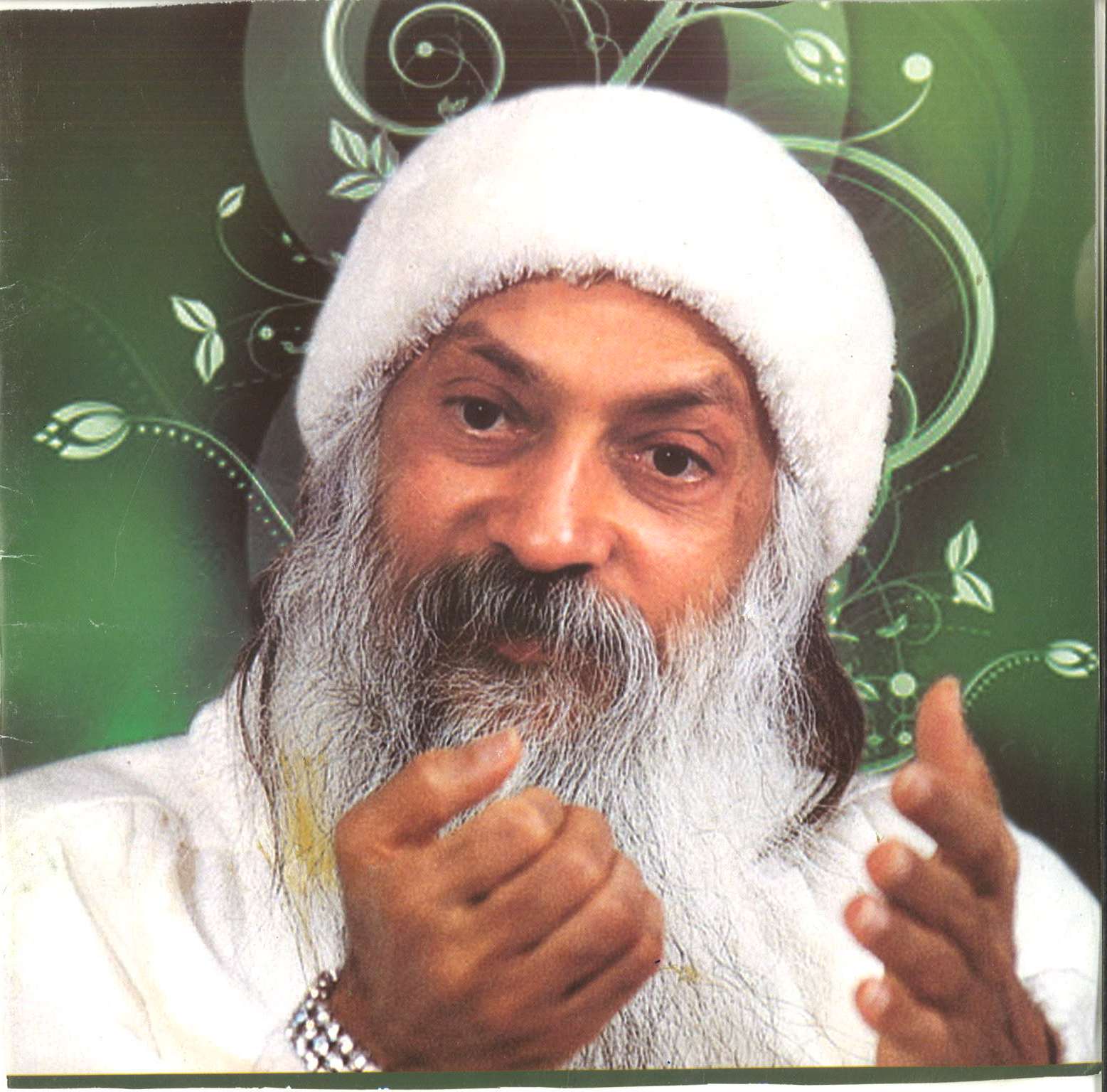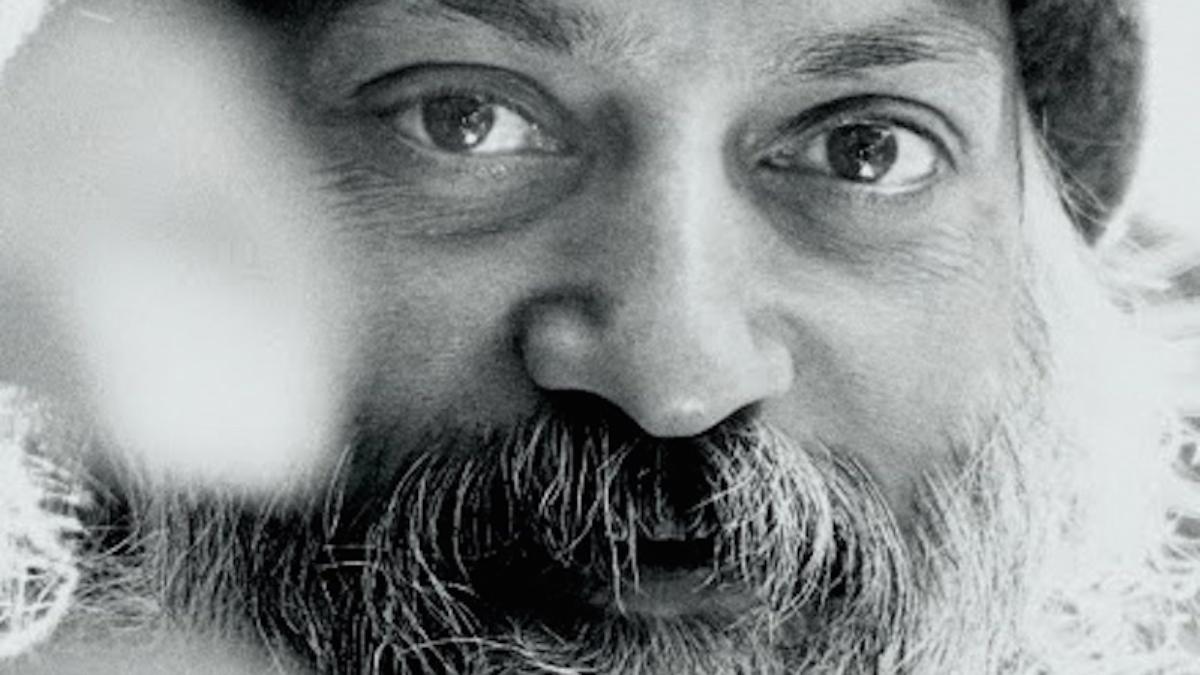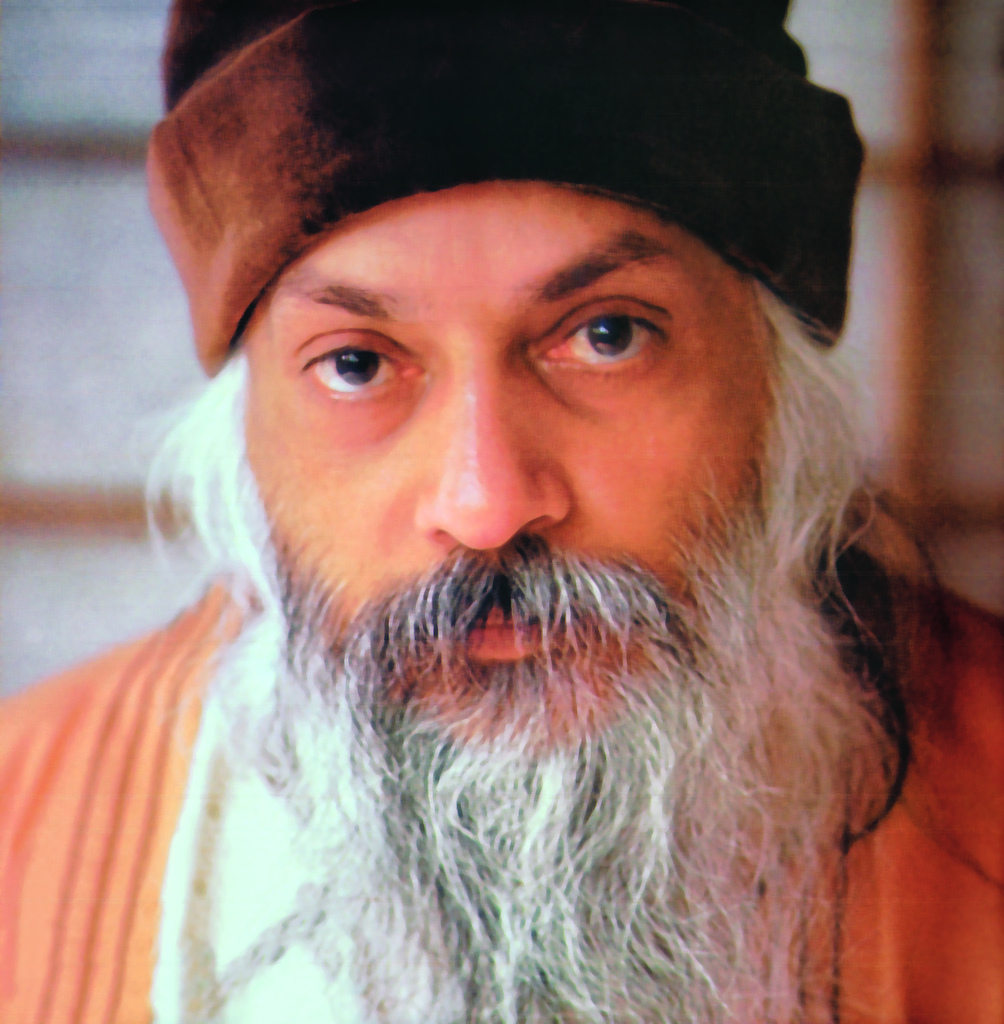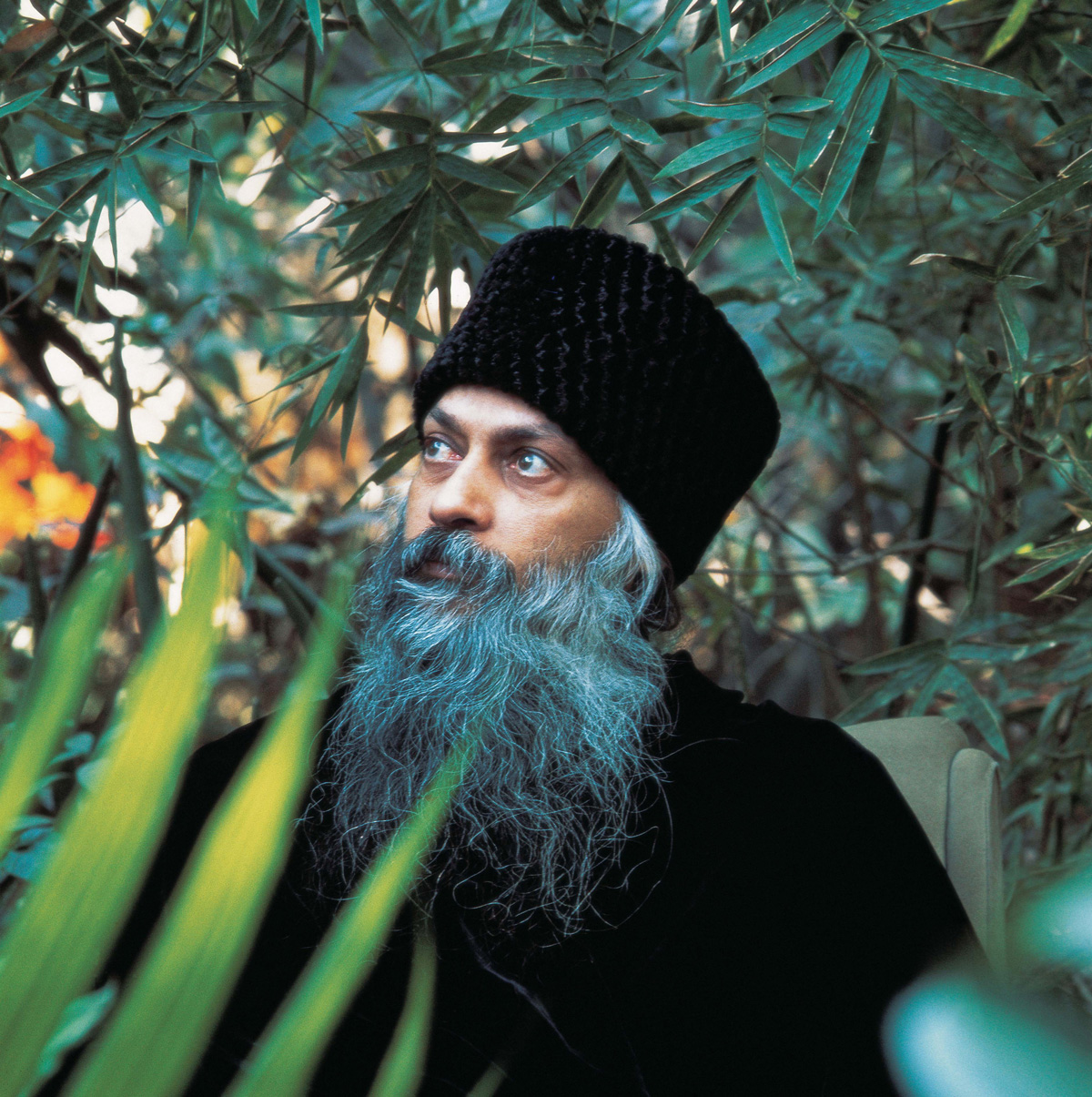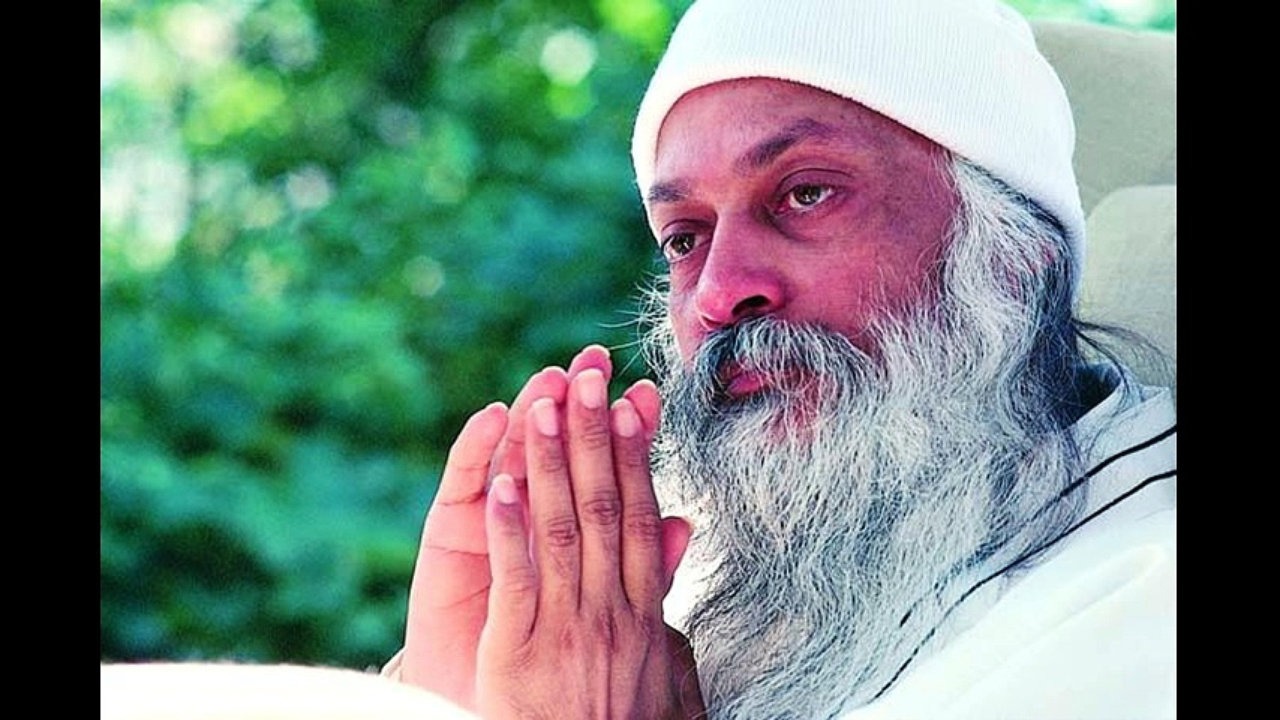How To Stop Thinking
I HAVE BEEN THINKING ALL DAY OF A WAY TO ASK THE QUESTION: HOW TO STOP THINKING?
THINKING cannot be stopped. Not that it does not stop, but it cannot be stopped. It stops of its own accord. This distinction has to be understood, otherwise you can go mad chasing your mind.
No-mind does not arise by stopping thinking. When the thinking is no more, no-mind is. The very effort to stop will create more anxiety, it will create conflict, it will make you split. You will be in a constant turmoil within. This is not going to help. And even if you succeed in stopping it forcibly for a few moments, it is not an achievement at all — because those few moments will be almost dead, they will not be alive. You may feel a sort of stillness, but not silence, because a forced stillness is not silence. Underneath it, deep in the unconscious, the repressed mind goes on working. So, there is no way to stop the mind. But the mind stops — that is certain. It stops of its own accord.
So what to do? — your question is relevant. Watch — don’t try to stop. There is no need to do any action against the mind. In the first place, who will do it? It will be mind fighting mind itself. You will divide your mind into two; one that is trying to boss over — the topdog — trying to kill the other part of itself, which is absurd. It is a foolish game. It can drive you crazy. Don’t try to stop the mind or the thinking — just watch it, allow it. Allow it total freedom. Let it run as fast as it wants. You don’t try in any way to control it. You just be a witness. It is beautiful!
Mind is one of the most beautiful mechanisms. Science has not yet been able to create anything parallel to mind. Mind still remains the masterpiece — so complicated, so tremendously powerful, with so many potentialities. Watch it! Enjoy it! And don’t watch like an enemy, because if you look at the mind like an enemy, you cannot watch. You are already prejudiced; you are already against. You have already decided that something is wrong with the mind — you have already concluded. And whenever you look at somebody as an enemy you never look deep, you never look into the eyes. You avoid!
Watching the mind means: look at it with deep love, with deep respect, reverence — it is God’s gift to you! Nothing is wrong in mind itself. Nothing is wrong in thinking itself. It is a beautiful process as other processes are. Clouds moving in the sky are beautiful — why not thoughts moving into the inner sky? Flowers coming to the trees are beautiful — why not thoughts flowering into your being. The river running to the ocean is beautiful — why not this stream of thoughts running somewhere to an unknown destiny? is it not beautiful?
Look with deep reverence. Don’t be a fighter — be a lover. Watch! — the subtle nuances of the mind; the sudden turns, the beautiful turns; the sudden jumps and leaps; the games that mind goes on playing; the dreams that it weaves — the imagination, the memory; the thousand and one projections that it creates. Watch! Standing there, aloof, distant, not involved, by and by you will start feeling…
The deeper your watchfulness becomes, the deeper your awareness becomes, and gaps start arising, intervals. One thought goes and another has not come, and there is a gap. One cloud has passed, another is coming and there is a gap. In those gaps, for the first time you will have glimpses of no-mind, you will have the taste of no-mind. Call it taste of Zen, or Tao, or Yoga. In those small intervals, suddenly the sky is clear and the sun is shining. Suddenly the world is full of mystery because all barriers are dropped. The screen on your eyes is no more there. You see clearly, you see penetratingly. The whole existence becomes transparent.
In the beginning, these will be just rare moments, few and far in between. But they will give you glimpses of what samadhi is. Small pools of silence — they will come and they will disappear. But now you know that you are on the right track — you start watching again.
When a thought passes, you watch it; when an interval passes, you watch it. Clouds are also beautiful; sunshine also is beautiful. Now you are not a chooser. Now you don’t have a fixed mind: you don’t say, “I would like only the intervals.” That is stupid — because once you become attached to wanting only the intervals, you have decided again against thinking. And then those intervals will disappear. They happen only when you are very distant, aloof. They happen, they cannot be brought. They happen, you cannot force them to happen. They are spontaneous happenings.
Go on watching. Let thoughts come and go — wherever they want to go. Nothing is wrong! Don’t try to manipulate and don’t try to direct. Let thoughts move in total freedom. And then bigger intervals will be coming. You will be blessed with small satoris. Sometimes minutes will pass and no thought will be there; there will be no traffic — a total silence, undisturbed.
When the bigger gaps come, you will not only have clarity to see into the world — with the bigger gaps you will have a new clarity arising — you will be able to see into the inner world. With the first gaps you will see into the world: trees will be more green than they look right now. You will be surrounded by an infinite music — the music of the spheres. You will be suddenly in the presence of God — ineffable, mysterious. Touching you although you can not grasp it. Within your reach and yet beyond. With the bigger gaps, the same will happen inside. God will not only be outside, you will be suddenly surprised — He is inside also. He is not only in the seen; He is in the seer also — within and without. By and by… But don’t get attached to that either.
Attachment is the food for the mind to continue. Non-attached witnessing is the way to stop it without any effort to stop it. And when you start enjoying those blissful moments, your capacity to retain them for longer periods arises.
Finally, eventually, one day, you become master. Then when you want to think, you think; if thought is needed, you use it; if thought is not needed, you allow it to rest. Not that mind is simply no more there: mind is there, but you can use it or not use it. Now it is your decision. Just like legs: if you want to run you use them; if you don’t want to run you simply rest — legs are there. In the same way, mind is always there.
When I am talking to you I am using the mind — there is no other way to talk. When I am answering your question I am using the mind — there is no other way. I have to respond and relate, and mind is a beautiful mechanism. When I am not talking to you and I am alone, there is no mind — because it is a medium to relate through. Sitting alone it is not needed.
You have not given it a rest; hence, the mind becomes mediocre. Continuously used, tired, it goes on and on and on. Day it works; night it works. In the day you think; in the night you dream. Day in, day out, it goes on working. If you live for seventy or eighty years it will be continuously working.
Look at the delicacy and the endurability of the mind — so delicate! In a small head all the libraries of the world can be contained; all that has ever been written can be contained in one single mind. Tremendous is the capacity of the mind — and in such a small space! and not making much noise.
If scientists some day become capable of creating a parallel computer to mind… computers are there, but they are not yet minds. They are still mechanisms, they have no organic unity; they don’t have any center yet. If some day it becomes possible… and it is possible that scientists may some day be able to create minds — then you will know how much space that computer will take, and how much noise it will make.
Mind is making almost no noise; goes on working silently. And such a servant! — for seventy, eighty years. And then, too, when you are dying your body may be old but your mind remains young. Its capacity remains yet the same. Sometimes, if you have used it rightly, it even increases with your age! — because the more you know, the more you understand, the more you have experienced and lived, the more capable your mind becomes. When you die, everything in your body is ready to die — except the mind.
That’s why in the East we say mind leaves the body and enters another womb, because it is not yet ready to die. The rebirth is of the mind. Once you have attained the state of samadhi, no-mind, then there will be no rebirth. Then you will simply die. And with your dying, everything will be dissolved — your body, your mind… only your witnessing soul will remain. That is beyond time and space. Then you become one with existence; then you are no more separate from it. The separation comes from the mind. But there is no way to stop it forcibly — don’t be violent. Move lovingly, with a deep reverence — and it will start happening of its own accord. You just watch. And don’t be in a hurry.
The modern mind is in much hurry. It wants instant methods for stopping the mind. Hence, drugs have appeal. Mm? — you can force the mind to stop by using chemicals, drugs, but again you are being violent with the mechanism. It is not good. It is destructive. In this way you are not going to become a master. You may be able to stop the mind through the drugs, but then drugs will become your master — you are not going to become the master. You have simply changed your bosses, and you have changed for the worse. Now the drugs will hold power over you, they will possess you; without them you will be nowhere.
Meditation is not an effort against the mind. It is a way of understanding the mind. It is a very loving way of witnessing the mind — but, of course, one has to be very patient. This mind that you are carrying in your head has arisen over centuries, millennia. Your small mind carries the whole experience of humanity — and not only of humanity: of animals, of birds, of plants, of rocks. You have passed through all those experiences. All that has happened up to now has happened in you also. In a very small nutshell, you carry the whole experience of existence. That’s what your mind is. In fact, to say it is yours is not right: it is collective; it belongs to us all.
Modern psychology has been approaching it, particularly Jungian analysis has been approaching it, and they have started feeling something like a collective unconscious. Your mind is not yours — it belongs to us all. Our bodies are very separate; our minds are not so separate. Our bodies are clear-cutly separate; our minds overlap — and our souls are one.
Bodies separate, minds overlapping, and souls are one. I don’t have a different soul and you don’t have a different soul. At the very center of existence we meet and are one. That’s what God is: the meeting-point of all. Between the God and the world — ‘the world’ means the bodies — is mind. Mind is a bridge: a bridge between the body and the soul, between the world and God. Don’t try to destroy it!
Many have tried to destroy it through Yoga. That is a misuse of Yoga. Many have tried to destroy it through body posture, breathing — that too brings subtle chemical changes inside. For example: if you stand on your head in shirshasana — in the headstand — you can destroy the mind very easily. Because when the blood rushes too much, like a flood, into the head — when you stand on your head that’s what you are trying to do…. The mind mechanism is very delicate; you are flooding it with blood. The delicate tissues will die.
That’s why you never come across a very intelligent yogi — no. Yogis are, more or less, stupid. Their bodies are healthy — that’s true — strong, but their minds are just dead. You will not see the glimmer of intelligence. You will see a very robust body, animal like, but somehow the human has disappeared.
Standing on your head, you are forcing your blood into the head through gravitation. The head needs blood, but in a very, very small quantity; and very slowly, not floodlike.
Against gravitation, very little blood reaches to the head. And that, too, in a very silent way. If too much blood is reaching into the head it is destructive. Yoga has been used to kill the mind; breathing can be used to kill the mind. There are rhythms of breath, subtle vibrations of breath, which can be very, very drastic to the delicate mind. The mind can be destroyed through them. These are old tricks. Now the latest tricks are supplied by science: LSD, marijuana, and others. More and more sophisticated drugs will be available sooner or later.
I am not in favour of stopping the mind. I am in favour of watching it. It stops of its own accord — and then it is beautiful When something happens without any violence it has a beauty of its own, it has a natural growth. You can force a flower and open it by force; you can pull the petals of a bud and open it by force — but you have destroyed the beauty of the flower. Now it is almost dead. It cannot stand your violence. The petals will be hanging loose, limp, dying. When the bud opens by its own energy, when it opens of its own accord, then those petals are alive.
The mind is your flowering — don’t force it in any way. I am against all force and against all violence, and particularly violence that is directed towards yourself. Just watch — in deep prayer, love, reverence. And see what happens! Miracles happen of their own accord. There is no need to pull and push.
You ask: How to stop thinking? I say: Just watch, be alert. And drop this idea of stopping, otherwise it will stop the natural transformation of the mind. Drop this idea of stopping! Who are you to stop? At the most, enjoy.
And nothing is wrong — even if immoral thoughts, so-called immoral thoughts, pass through your mind, let them pass; nothing is wrong. You remain detached. No harm is being done. It is just fiction; you are seeing an inner movie. Allow it its own way and it will lead you, by and by, to the state of no-mind. Watching ultimately culminates in nomind.
No-mind is not against mind: no-mind is beyond mind. No-mind does not come by killing and destroying the mind: no-mind comes when you have understood the mind so totally that thinking is no longer needed — your understanding has replaced it.
Excerpted From A Sudden Clash Of Thunder CH: 2


